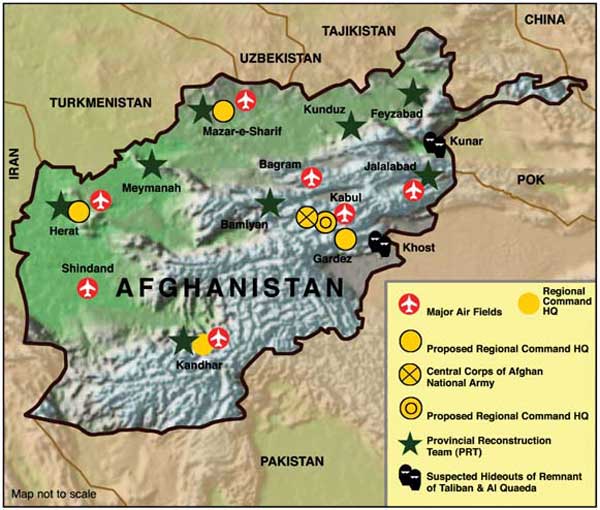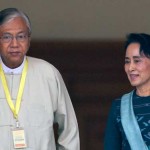IDR Blog
Afghanistan: The Game That Wasn't Great
“A nation’s culture resides in the heart and in the soul of its people”
– Mahatama Gandhi
Never in the history of mankind, has a country been so devastated and exploited by strong external powers like Afghanistan. In the name of expanding one’s colonial kingdom or safeguarding one’s national interest, Afghanistan has been on the receiving end of external powers. The unending saga of sorrow for Afghanistan commenced with the First Anglo-Afghan war (1839-42). The narrative for Afghanistan has stayed the same since two enduring centuries. The hope for a peaceful future seems to be lost somewhere in obscurity. This article endeavors to present an insight into the self serving interests of stake holders leading to the Afghanistan imbroglio.
Glorious History to Era of Darkness
The Afghanistan region has a glorious past as a part of one of the oldest civilizations – Indus Valley (Oxus river Shortugai in Northern Afghanistan and Mundigak). The land was also part of Vedic Age from 1500-500 BC. During Alexander invasion in 326 BC, it witnessed development of towns and cities. During the rule of the Great Mauryan Empire of India from 322-187 BC, the land was blessed with both peace and prosperity. Buddhism spread spirituality during the rule of King Ashoka1. However, today Afghanistan displays a grim picture of a land which seems to be forgotten by all the gods. After basking in the sun shine of glorious past came an era which engulfed Afghanistan in darkness, bloodshed, exploitation, treachery and above all loss of humanity. That is why, it becomes so significant to understand as to how once blessed land has met this miserable fate. The game played between British and Russia in the Nineteenth century had sown the seeds of downfall of a nation and its gallant natives. The world called it ‘The Great Game’. The ‘Game’ which played with the blood of the Afghans. The ‘Game’ which hurled the nation on a path never to recover from. It was just a sheer self obsessed power play between the two powerful rivals without any slightest regret for their actions. If this was not enough, in 1893, the British Raj further compounded the Afghan problem with the marking of Durand Line. This line demarcated Afghanistan and British India. It cuts through the Pashtun tribal areas in the North and further South through the Balochistan region. Since the partition of India in 1947, the Durand Line has remained the biggest thorn between Afghanistan and Pakistan relationship. An was an illogical step from the point of view of ethnography, strategy and geography. It is indeed a classic example of an artificial political boundary cutting through an area disregarding a nation’s geographical and ethnic integrity.
Sordid Saga During End of Cold War (1979-89)
The interplay between the US and erstwhile USSR in the 70s and 80s made the game bad to worse. A new entity-Mujahideen was propped up by the US and subserviently supported by Pakistan to over throw the Russians from Afghanistan3. And today, the demons come haunting the masters who created them. This sad saga of Afghanistan seems like a script gone awry from the beginning and players joining at any stage further spoilt it with their abysmal act. The present day state of affairs in Afghanistan is gruesome. A suicide bomber attack or a bomb blast on a daily basis has become a new normal. There is a need to ask questions by one and all as to who all are responsible for these dire straits of Afghanistan. And for whose fault, generation after generation of Afghans is getting embroiled in the ghastly violence.
The New Low
Today, Afghanistan is known as one of the poorest country in the world. It also has the dubious distinction of having the highest rate of violence. Approximately, 7000 security personnel killed last year and more than 10000 civilian died/ wounded in various attacks3. Islamic State of Khorasan (IS-K) is gaining prominence against all odds and above all, Taliban controlled areas are increasing as never before. Taliban still enjoy a strong support base among the natives. However, one more primary fact which should be accounted for is the unhindered sustenance Taliban receive from Pakistan. Due to the US-Pak friendship of convenience, Pakistan was sheltered all along in the international forums. But now, as the things have gone sour between the two, Pakistan has started facing the pressure from international community for sponsoring terrorism from its soil with only one place to look and run i.e. Beijing.
The Afghan Spirit
There is no denying that the various tribes which co-exist in Afghanistan exhibit widespread diversity than commonalities. However, history is also replete with numerous examples of infighting within different ethnic tribes in many countries which are now prosperous both economically and militarily. For Afghans, there has always been one binding factor which surmount their ethnic differences i.e. Islam. Unlike neighbouring Middle East countries and Pakistan, the Shia-Sunni divide has never been an issue as concerning as their ethnic diversity. Yet, despite their internal differences and strife for power, the Afghans always stood against outside invasion. By extrapolating the above view in today’s scenario, it prompts oneself to question as to how the Taliban came into existence. With modest introspection, all fingers point towards a select group of powerful countries. This select group ended up exploiting and pushing Afghanistan into prolonged misery of violence and volatility for their own political ascendency.
Geographical Nightmare
Afghanistan is located at the gateway of West, Central and South Asia4. It was blessed to be a prosperous and vibrant nation had the civilized world shown some civility and not ravaged the country. It seems as if the geo-strategic location of Afghanistan itself became a bane to live with. Its indeed a crucial time not only for Afghanistan but also for the international fraternity to resolve and fix the Afghan problem. Otherwise, it will again go out of hand as happened after Soviet withdrawal (1989). The countries at the helm of affairs in creating chaos in Afghanistan turned away for no reason and pushed Afghanistan into a civil war. No one wants the same situation which can arise if US leaves Afghanistan in the middle of this imbroglio on some pretext or other. As happened after the hasty withdrawal from Iraq, Afghanistan can also become a sanctuary of terror with far greater repercussions for the world.
Western Fallacies
Its time before the Bad game turned Worse becomes the Worst game ever played in Afghanistan. Utmost truthfulness by all stakeholders is need of the hour to bring an end to the misery for Afghans. There is also an imperative need to curb certain narratives spread for a long time regarding Afghanistan. A country with unbridgeable ethnic divide, a drug haven and a country which lacks political and social fabric are all fallacies propagated by the West. These are nothing but the ill-givings of power play by external stake holders to Afghanistan and in no way display the actual core values of the nation.
A Way Forward
Idealism is often appreciated but loses out to practicality in today’s world. A narrative without pragmatic solution or a way ahead loses its sheen after a while. There is definitely a solution to the Afghan imbroglio. Not venturing into often treaded path of several options, let us stick to the most potent one. Give Afghans what they need i.e. peace, social & political stability, economic empowerment, self sufficiency and above all no military interventions. For once the US, Russia, China and the responsible Islamic states have to bury their differences and bring the Taliban to the negotiating table. Their unity for the cause will also help them removing their own vulnerabilities. All out diplomatic efforts and military prowess to be put to test. China definitely has the influence on Pakistan what takes to make her fall in line. Though a valid question arises as to why China with vested interest in Pakistan would take the needed step. The answer, however, lies within the question itself i.e. if China has to safeguard its national interest and aim of achieving energy security through this region then stability in Afghanistan and Pakistan is of prime importance. Otherwise playing a game through its ‘deeper than ocean and higher than mountains’ friend is a sure shot recipe to doom. Even Chinese Sun Tzu strategy may not have the strength to face the Afghan curse.
India is also a major stake holder in the peace process in Afghanistan. India and Afghanistan share a strong historical relationship based on cultural and economic ties. Being a ‘Strategic Partner’ of Afghanistan, India should maintain its resolve for reconstruction of Afghanistan by continuing with developmental work and providing assistance to Afghan security forces in India for capacity building. A constitution of a ‘Working Group’ comprising US, Russia, China, Pakistan, India, Tajikistan, Uzbekistan, Turkmenistan and any other relevant member like Saudi Arabia, Iran etc be created aiming at a single point agenda – A Stable Afghanistan by 2020.
History is replete with examples that whenever sanity has prevailed, the most difficult steps become the easiest to execute. Hope all stake holders come together leaving their megalomaniac animosity behind to help settle a country which deserves peace and stability after 200 years of gloom. That will actually be “A Great Game”.
“Condemn none, if you can stretch out a helping hand, do so. If you cannot, fold your hands, bless your brothers, and let them go their own way”
– Swami Vivekanand
References
1. Historical Timelines of Afghanistan, Introduction, Meredith L. Runion, Greenwood Press London, 2007.
2. The Durand Line: History And Problems Of The Afghan-Pakistan Border, Article by Bijan Omrani, 17 Jun 2009.
3. Aaron B. O’Connell, ‘Our Latest Longest War’, University of Chicago Press
4. UNAMA Report – 2017 and SIGAR Report -2017.
5. Wikipedia, History of Afghanistan.
Courtesy: http://www.claws.in/1921/afghanistan-the-game-that-wasnt-great-col-anurag-bharadwaj.html





